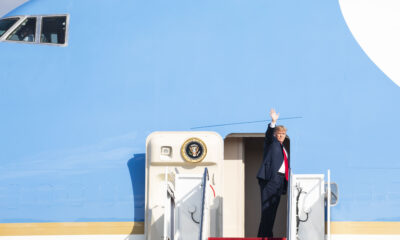Executive
Businesses Exist to Dominate the Markets They’re In
A free-trade apologists suggests that TikTok doesn’t deserve sanction for market domination alone, because all businesses do this.

The protectionist attacks on TikTok continue, this time care of thirteen state attorneys general and the District of Columbia. The New York Times reports that the multi-state lawsuit against TikTok is rooted in the accusation that it’s “creating an intentionally addictive app” that is allegedly harming teenagers and children.
Businesses exist to capture market share
The very accusations raise obvious questions. Seriously, what app or business isn’t interested in creating a product or service that its users can’t get enough of? If the previous question isn’t clear enough, readers need only imagine pitching a business idea to an investor that is merely ok, and that might occasionally occupy the attention of some users.
It’s the goal of all businesses to capture as much customer share as possible. McDonald’s, Wendy’s, and Burger King initially won customers with narrow menus that offered hamburgers and hamburger adjacent items, only for all three to eventually expand to chicken sandwiches, nuggets, salads, and more. They also added fairly extensive breakfast menus in the hope of winning the battle for morning consumption too.
Considering Netflix, it discovered through the “binge-watching” nature of its customers’ viewing habits that the best way to keep them on Netflix as long as possible was through the release of television seasons all at once. No more waiting a week to see the next episode (and for subscribers to find something else to entertain them) a la the formerly dominant television networks, Netflix will continue to produce and purchase content that will meet and lead the needs of viewers as long as possible and every day. And each episode will end in unresolved fashion so that the viewer continues on to the next over exiting Netflix altogether.
Competing for customer’s time
Notable is that Amazon and Apple are no different. With good reason. Amazon didn’t add Prime just because it felt generous, but as a way of earning more of its customers’ time when they’re not shopping. Addictive as its iPhones are to some, Apple plainly recognizes the pull of Netflix and Prime (among others), so it spends copious sums on content of its own as a way of keeping its iPhone and iPad users’ attention when they’re not scrolling through both.
Which brings us back to TikTok. If it weren’t aggressively competing for our eyeballs, it wouldn’t exist. It’s sad something so obvious requires stating, but at a time when TikTok’s very existence is paradoxically threatened by its success, the obvious requires stating. Of course TikTok is feverishly working to constantly improve its product so that users stick around. Each day it must compete so that its users won’t depart. Which is the point, or should be.
Implicit in the latest lawsuits is that if TikTok hadn’t allegedly created an “intentionally addictive app,” the dedicated users of it would be doing homework, flying kites, engaging in community service, or some other seemingly “good” use of their time. More realistically, if teens weren’t on TikTok, they’d be on less appealing apps. Get it?
Healthy competition
The political types aren’t trying to take TikTok down because they deeply worry about supposedly excessive screen-time for young people, but because TikTok has done a much better job of meeting the needs of America’s youth, and this has its competitors scared. TikTok’s alleged problem isn’t its content, it’s that it’s beating the competition.
The attacks on TikTok are the latest protectionist attempt by lawmakers to use government force to snuff out necessary market competition. Having failed to compel the electorate with laughable claims that TikTok operates at the pleasure of the CCP (have you ever heard of a government-sanctioned business that users can’t get enough of?), or that it’s “brainwashing” users to hate America and capitalism (visit an intensely Americanized China to see how TikTok can’t even brainwash the Chinese), members of the U.S. political class are now trying to make TikTok’s genius the source of its politicized downfall.
Yes, the protectionist impulses of the U.S. political class are at work, and TikTok is needlessly suffering them. Better it would be if politicians would just be honest about what they’re up to, rather than insult our collective intelligence with the pretense that there’s something noble underlying their actions not driven by economy and liberty-sapping protectionism.
This article was originally published by RealClearMarkets and made available via RealClearWire.
John Tamny is editor of RealClearMarkets, President of the Parkview Institute, a senior fellow at the Market Institute, and a senior economic adviser to Applied Finance Advisors (www.appliedfinance.com). His latest book is The Money Confusion: How Illiteracy About Currencies and Inflation Sets the Stage For the Crypto Revolution.
-

 Civilization4 days ago
Civilization4 days agoWhy Europe Shouldn’t Be Upset at Trump’s Venezuelan Actions
-

 Christianity Today4 days ago
Christianity Today4 days agoSurprising Revival: Gen Z Men & Highly Educated Lead Return to Religion
-

 Executive5 days ago
Executive5 days agoWaste of the Day: Can You Hear Me Now?
-

 Civilization2 days ago
Civilization2 days agoTariffs, the Supreme Court, and the Andrew Jackson Gambit
-

 Civilization2 days ago
Civilization2 days agoWhy Europe’s Institutional Status Quo is Now a Security Risk
-

 Civilization3 days ago
Civilization3 days agoDeporting Censorship: US Targets UK Government Ally Over Free Speech
-

 Executive3 days ago
Executive3 days agoWaste of the Day: Wire Fraud, Conflicts of Interest in Connecticut
-

 Education4 days ago
Education4 days agoWaste of the Day: Throwback Thursday – The Story of Robosquirrel














